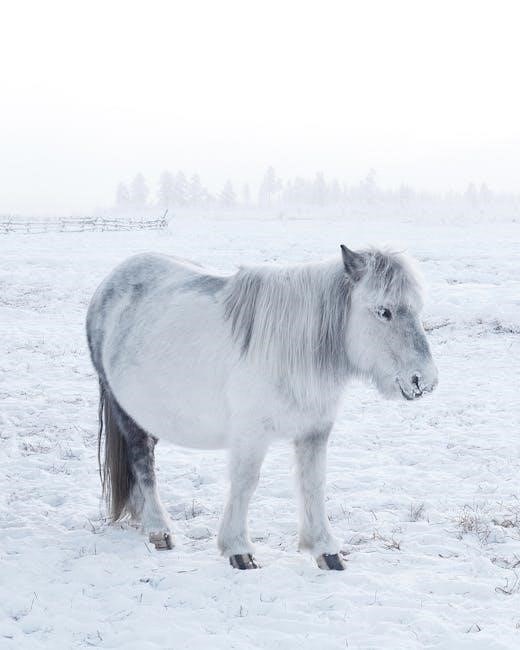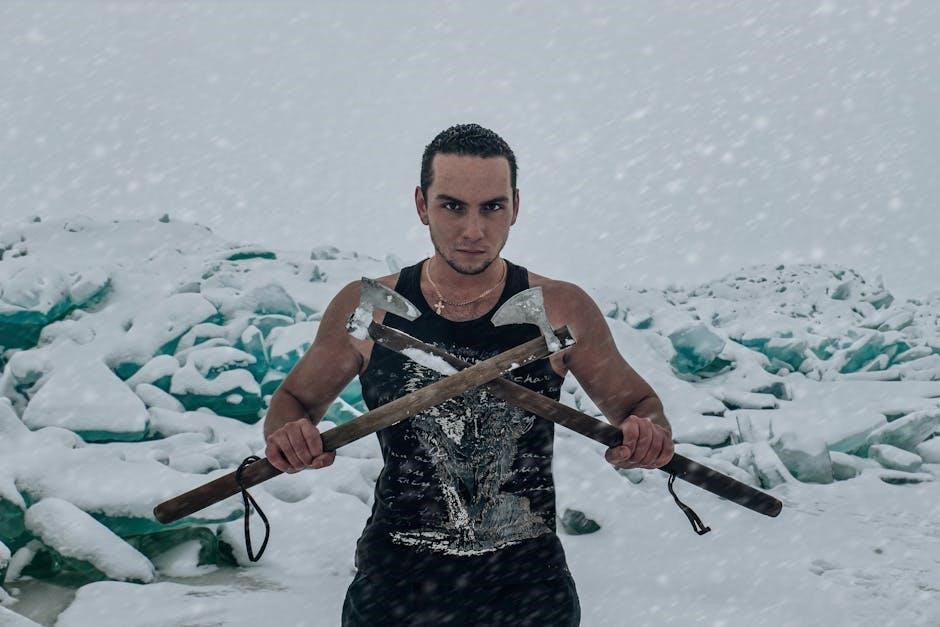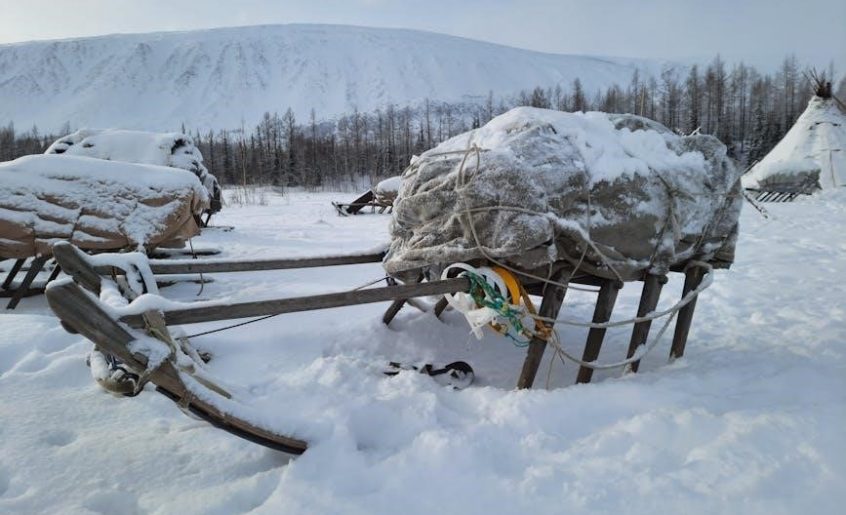Survival in Russia encompasses adapting to its harsh climate, vast wilderness, and unique cultural context. Lars, a Danish expatriate, shares insights into rural Russian life, emphasizing self-sufficiency and outdoor skills, while the nation navigates global challenges, making survival a multifaceted endeavor.
Overview
Survival in Russia involves adapting to its vast, harsh environment and geopolitical challenges. Lars, a Danish expatriate, highlights rural life and outdoor skills on his Survival-Russia channel. The country’s resilience amid global conflicts, sanctions, and economic shifts underscores its strategic adaptation for long-term survival and stability, influencing the world stage.
Importance
Survival in Russia is crucial due to its extreme climate and geopolitical tensions. Lars’s channel offers insights into rural life, while the nation’s resilience amid global conflicts highlights its strategic importance. Mastering survival skills ensures adaptability, making it vital for both individuals and the country’s global standing and stability.

Practical Survival Techniques
Mastering wilderness survival, shelter-building, and foraging is essential. Lars shares skills for thriving in Russia’s harsh environments, while EMERCOM’s survival school prepares volunteers for extreme conditions.
Wilderness Survival
Russia’s vast forests and harsh climate demand expert survival skills. Lars from Survival-Russia shares techniques for thriving in wild environments, including shelter-building and foraging. EMERCOM’s survival school also trains volunteers in extreme conditions, ensuring readiness for the unforgiving Russian wilderness.
Self-Sufficiency
Lars from Survival-Russia highlights the importance of self-sufficiency in rural areas, emphasizing homesteading and outdoor skills. Growing food, collecting firewood, and preserving supplies are essential. Practical tips include building shelters and finding food in the wilderness, ensuring independence in Russia’s challenging environment.
Outdoor Lifestyle
The outdoor lifestyle in Russia emphasizes adaptability and resilience, with Lars from Survival-Russia sharing insights on wilderness living. Techniques include building shelters, foraging, and navigating harsh climates, reflecting a deep connection to nature and self-reliance in Russia’s vast landscapes.
Language as a Survival Tool
Language is a vital tool for survival in Russia, enabling effective communication and navigation of daily life, emergencies, and cultural interactions, empowering individuals to thrive in diverse situations.
Survival Russian Course
The Survival Russian course, designed for foreigners, focuses on conversational skills to navigate everyday situations. It includes practical lessons on reading and understanding Russian, ensuring effective communication in real-life scenarios, from basic interactions to emergencies, tailored for those with limited proficiency.
Importance for Foreigners
For foreigners, understanding Russian language and culture is crucial for survival. Lars, a Danish expatriate, highlights the challenges of adapting to rural Russia. Language barriers and cultural differences can hinder daily life, making proficiency in Russian essential for effective communication and integration into society.
Real-Life Applications
Survival skills in Russia are essential for navigating harsh environments. Lars, a Danish expatriate, demonstrates wilderness survival techniques, such as building shelters and finding food. Language proficiency also plays a critical role in real-life situations, enabling foreigners to communicate effectively and adapt to cultural norms in remote areas.
Cancer Survival Rates
Cancer survival rates in Russia have improved significantly, with a 9% increase over five years. Early detection and advanced treatments are key factors driving this positive trend.
Current Rates
Russia has seen a 9% increase in cancer survival rates over the past five years. Advances in early detection, improved treatments, and better healthcare access have significantly contributed to this positive trend, especially for cancers like breast and colorectal, showcasing progress in oncology care.
Treatment Improvements
Russia has made significant strides in cancer treatment, with advancements in oncology, targeted therapies, and immunotherapy. Increased investment in healthcare infrastructure and early diagnosis programs has improved patient outcomes, aligning with global standards and enhancing survival rates across various cancer types.
Challenges
Russia faces challenges like geopolitical tensions, sanctions, and the Ukraine conflict, straining relations with the West. These factors impact economic stability, healthcare access, and global cooperation, posing significant hurdles for national and individual survival in an increasingly complex international landscape.

SME Survival
Russian SMEs face challenges like economic instability, limited access to finance, and sanctions. Their survival depends on adaptability, innovation, and strategic partnerships to thrive in a competitive global market.
Factors Influencing Survival
Russian SMEs’ survival is influenced by economic instability, sanctions, and limited access to finance. Adaptability, strategic partnerships, and diversification are crucial. Government support and digital transformation also play roles, enabling SMEs to navigate challenges and sustain operations in a competitive global economy.
Current State
Russia’s current state reflects resilience amid global tensions; SMEs face challenges but adapt through innovation. Cancer survival rates have improved by 9% in five years, showcasing medical advancements. EMERCOM’s survival schools enhance Arctic readiness, while sanctions impact economic stability, prompting strategic adjustments to ensure long-term sustainability and national security.
Future Outlook
Russia’s future outlook involves strategic adaptations to global shifts; EMERCOM’s survival initiatives will expand, enhancing readiness for extreme environments. Sanctions may drive domestic innovation, fostering self-reliance. SMEs are expected to play a pivotal role in economic resilience, leveraging adaptive strategies to thrive in a challenging yet dynamic international landscape.

Geopolitical Survival
Russia navigates global crises, leveraging resilience and strategic adaptations. The Ukraine conflict and Western sanctions highlight its ability to endure, ensuring survival amidst shifting international power dynamics.
Ukraine Conflict
The Ukraine conflict has strained Russia’s relations with the West, casting it as an existential struggle. President Putin frames this as vital for Russia’s survival, while the crisis marks the sharpest rift in 25 years, testing Russia’s resilience and global standing.
Sanctions Impact
Sanctions have strained Russia’s economy, impacting sectors like military production. Despite adaptation efforts, concerns linger about long-term sustainability, as the nation navigates a challenging global landscape, striving to maintain resilience amid punitive measures aimed at its stability and international influence.
Global Power Shifts
Russia’s geopolitical stance in the Ukraine conflict underscores its role in shifting global power dynamics. The nation adapts to sanctions, leveraging resources and alliances to maintain influence, while the world witnesses evolving economic and military strategies aimed at redefining international balances of power and regional stability.
Government Initiatives
Russia’s government has launched programs like EMERCOM’s survival school, focusing on disaster preparedness and Arctic survival skills. Military production and adaptation strategies ensure national resilience in global crises.
EMERCOM Survival School
EMERCOM’s survival school equips volunteers with Arctic survival skills, focusing on disaster preparedness and emergency response. Practical training ensures self-reliance in extreme conditions, benefiting both locals and international participants, fostering resilience in Russia’s challenging environments.
Military Production
Russia’s military production has adapted to global sanctions, ensuring operational capabilities. Strategic shifts in manufacturing and resource allocation have enabled the nation to sustain its defense industry, maintaining geopolitical influence amid international tensions and economic pressures.
Adaptation Strategies
Russia’s adaptation strategies focus on resilience and practical skills, with initiatives like EMERCOM’s survival schools teaching volunteers to thrive in extreme conditions. Lars, a Danish expatriate, highlights rural homesteads and outdoor lifestyles as key to adapting in Russia’s vast, challenging environment, blending traditional techniques with modern survival methods for long-term sustainability.

Cultural Survival
Russia’s cultural survival revolves around preserving traditional communities and nomadic tribes’ unique lifestyles. Tourism and cultural exchange play a crucial role in sustaining these customs and fostering global appreciation.
Traditional Communities
Traditional Russian communities thrive through sustainable practices and cultural preservation. Nomadic tribes like the Nenets maintain their reindeer herding traditions, while rural villages uphold centuries-old customs. Lars, a Danish expatriate, highlights the resilience of these communities, emphasizing their deep connection to nature and heritage, ensuring their way of life endures in a modernizing world.
Nomadic Tribes
Nomadic tribes in Russia, such as the Nenets, thrive in harsh Arctic environments, relying on reindeer herding and traditional survival skills. Their resilience and deep connection to nature ensure their way of life endures, preserving cultural heritage while adapting to modern challenges in a rapidly changing world.
Tourism
Russia’s vast wilderness and extreme climates attract adventurers seeking survival experiences. From life in Yakutsk, the world’s coldest city, to nomadic encounters, tourists immerse themselves in unique cultural and survival challenges, fostering global interest in Russia’s rugged beauty and resilience, as documented in survival documentaries and travel vlogs worldwide.
Survival in Russia and its global implications encompass a wide range of challenges, from navigating harsh climates to geopolitical tensions. Lars, a Danish expatriate, highlights rural life and outdoor skills, while the nation’s resilience in the face of sanctions and global power shifts underscores its adaptability and cultural survival strategies, drawing worldwide attention.
Lars, a Danish expatriate in rural Russia, shares insights into wilderness survival, emphasizing shelter-building, hunting, and fire-making. These skills, vital in Russia’s vast forests, are globally relevant, as seen in the popularity of the Survival-Russia YouTube channel, which offers practical advice for thriving in harsh environments worldwide.
Language
Mastering conversational Russian is crucial for survival in Russia. The “Survival Russian” course, designed for foreigners, focuses on practical communication skills. It helps navigate daily challenges, from basic interactions to emergencies, ensuring effective communication in Russian-speaking environments, particularly in rural and wilderness areas where English is scarce.
Cancer Survival
Cancer survival rates in Russia have improved, with a 9% increase over five years. Enhanced treatments and early detection programs contribute to better outcomes. However, challenges remain, including late diagnoses and regional disparities in healthcare access, affecting overall survival rates for patients with serious malignancies.
Factors like economic conditions, access to finance, and market competition significantly influence SME survival in Russia. Sanctions and global economic shifts have intensified challenges, necessitating adaptability. Strategies such as diversification, digital transformation, and leveraging domestic markets are crucial for SME resilience and sustained growth in a volatile environment.
Russia faces existential geopolitical challenges, including the Ukraine conflict and Western sanctions. President Putin emphasizes survival as a national priority, adapting to global power shifts. Sanctions have reshaped Russia’s economy, yet its resilience in navigating these crises underscores its strategic adaptability on the world stage amid escalating tensions.
Russia’s government has launched EMERCOM survival schools, equipping volunteers with Arctic survival skills. Military production remains vital, ensuring national security. Adaptation strategies focus on substituting imports and enhancing self-reliance, enabling Russia to thrive under sanctions and global pressures, as highlighted in recent initiatives and reports.
